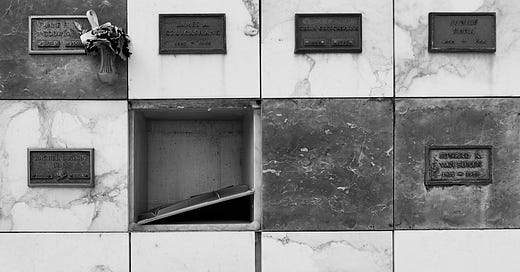Some long-time Cuba policy watchers are saying that President Donald Trump’s new directive on Cuba, published last week, is just more of the same—some nostalgic rerun of what happened in 2017. That’s a lazy take. The world has changed significantly since then, and if we’re going to be serious about liberty in the Americas, our policy must change with it.
That is what NSPM-5 is intended to do: provide recommendations to the President on what needs to be done next to advance U.S. national interests concerning Cuba and, of course, the Americas.
While critics argue that the President and his team are looking backward, that’s not the case. The President has instructed his national security cabinet—comprising State, Treasury, Defense, Justice, and other relevant agencies—to review the law, enforce it, and present him with forward-looking options.
Whatever path the cabinet proposes, it must focus on America and Americans first. The political future of Cuba is up to the Cuban people—not us. So, what are some of these America First goals that demand urgent attention?
One non-negotiable goal must be prioritized: removing Russia, China, and other adversaries from Cuba and the Western Hemisphere. While Russians operate in several Latin American and Caribbean countries, Cuba remains their strategic perch. China poses a similar challenge. Breaking the Cuba-Russia bond must be a central component of any serious Cuba policy.
Policymakers should stop pretending the Moscow-Havana relationship is a relic. Russia has exploited Cuba since the Cold War. That hasn’t changed. It has escalated. Russia has reportedly reactivated the Lourdes SIGINT base and continues to expand its footprint in Cuba.
Russian GRU intelligence officers are being sent to Cuba under diplomatic cover. China is now operating at least four intelligence facilities on the island, targeting U.S. communications and security. This isn’t theoretical or futuristic. It’s real—and it’s happening now.
America cannot talk about a policy reset without addressing the wrongful detention of U.S. citizens and lawful residents. These are political hostages. Their freedom must be a top priority—not a negotiation chip for later.
If Americans are ever going to conduct real business in Cuba again—not micro-shop experiments, but actual infrastructure, energy, aviation, and commercial development—then we must resolve the longstanding property claims, for example.
Cuba owes Americans billions of dollars for assets confiscated illegally. That cloud on the title doesn’t disappear with time or wishful thinking. It’s a legal obstacle to serious engagement. Even the Obama administration, despite its missteps, recognized this and opened the door to discussions. That issue must now become a pillar of policy, not a footnote.
If Cuban leaders want the world to “leave them alone,” they need to behave like a sovereign government that respects its neighbors: cooperate with U.S. law enforcement on drug trafficking, organized crime, and counterterrorism; secure borders and stop using migration as leverage; stop harboring U.S. fugitives and transnational criminals.
When these and other expectations (read current laws) aren’t met, there must be consequences. Economic sanctions are a start, but all instruments of state power—diplomatic, legal, intelligence, and military power—should be brought to bear.
Finally, the vast majority of policy debates on Cuba these days ignore the enduring trauma of the Cuban exile community. That’s a mistake. These are American families who fled communism, imprisonment, torture, extrajudicial killings, property expropriation, and more.
Any durable solution must acknowledge history and ensure justice for those who still carry that pain and seek accountability. Why has Raul Castro not been indicted for the murder of American citizens? He is closing in on 95. We are running out of time. Why do we allow Cuban system agents to enter the U.S. for family or medical trips? Why are there known human rights abusers of American citizens moving into America?
Helms-Burton, the embargo, and U.S. export controls remain the foundation of U.S. law on Cuba. But much of it was written for a different era. This presents an opportunity, not to erase the law, but to update it for modern threats, such as cybercrime, digital evasion, and AI-enabled financial networks. The Tri-Seal and Quint-Seal compliance notes indicate that the U.S. government is already considering this approach. Let’s build on that momentum for enforcement actions and investigations that advance U.S. policy toward Cuba.
Finally, where is the international cooperation on Cuba policy? Why are Canadian, Spanish, and European companies allowed to do business in Cuba with impunity?
Latin American governments, such as those of Argentina and El Salvador, often strike a pro-American tone. They’re better than past regional leaders—but they can and must do more. How many sanctions have they imposed on Cuba? None. Are they helping the U.S. counter authoritarian influence in the region? Not meaningfully. If we’re going to talk about shared democratic values, let’s see action, not tweets.
This is an opportunity to break free from the tired cycles of both political parties. No more half-measures. No more think tank platitudes. Liberty in the Americas demands clarity, courage, and execution. The President has opened the door. Now it’s time for the rest of the government to step up and walk through it—with strategy, law, and conviction. We’ve looked away for too long.



